O.M.G. I thought I was obsessed with pickled red onions, but then I made these pickled jalapeños and I literally can’t stop eating them. Every time I go in the fridge I have to pop one or two in my mouth, in addition to adding a few on top of everything I’ve been eating. 😅 These little guys are addictive! So, if you’ve got a pepper plant that is still producing or are looking for a way to use up some leftover jalapeños from another recipe, trust me, you NEED to make these pickled jalapeños.
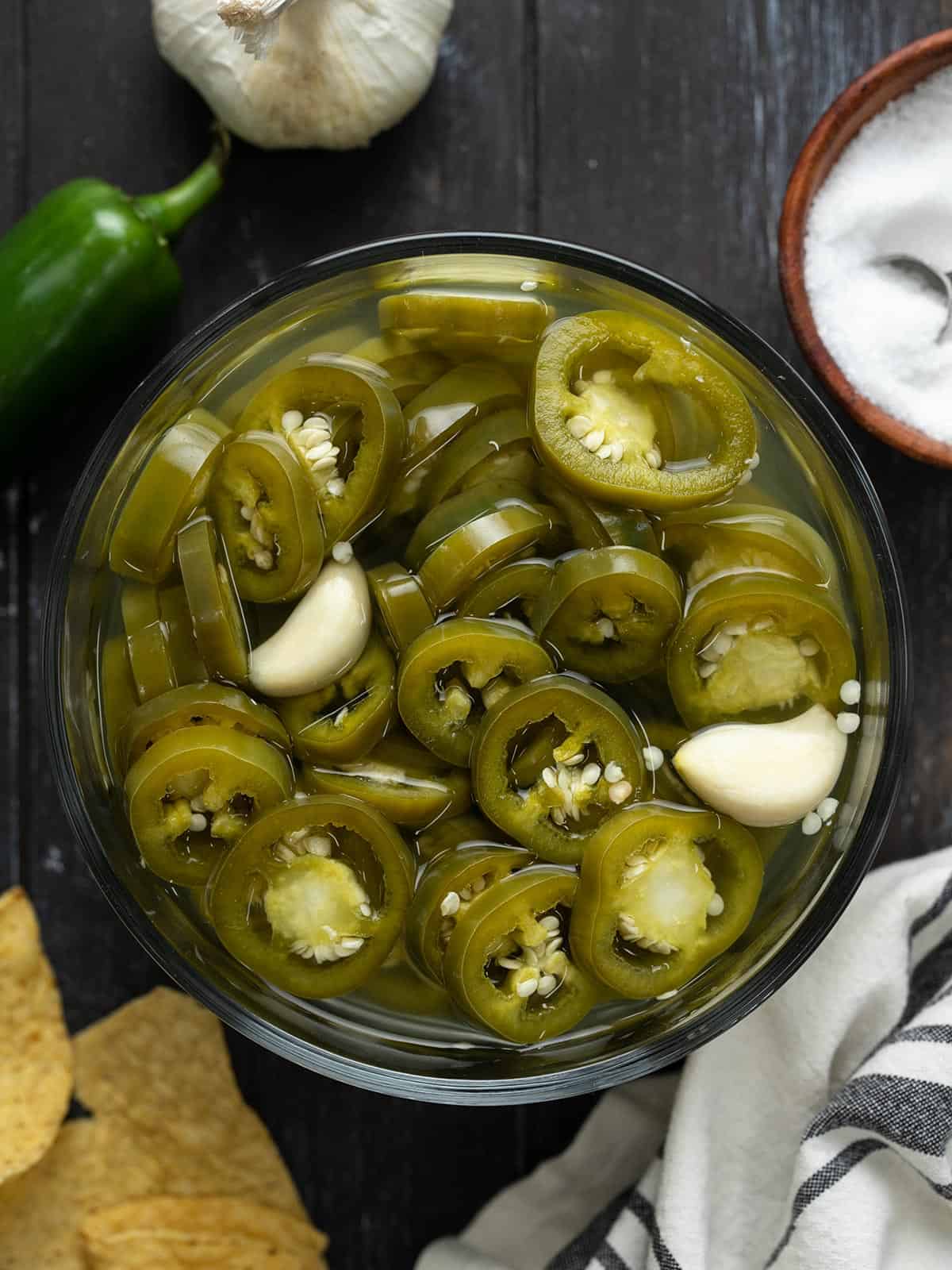
All recipes are rigorously tested in our Nashville Test Kitchen to ensure they are easy, affordable, and delicious.
What are Quick Pickles?
There are two main ways to pickle vegetables: fermentation and quick pickling in a vinegar-based brine. Fermentation pickling takes days to weeks to accomplish, as natural bacteria produce acid that combines with added salt to create a brine. Quick pickles only take minutes because they start with a pre-made acidic brine made with vinegar and salt. The method I used for these pickled jalapeños is quick pickling, which I love because it’s so fast and convenient. Just keep in mind that quick pickles do not contain live cultures.
Ingredients for Pickled Jalapeños
Here’s what you’ll need to make quick pickled jalapeńos:
- Fresh jalapeños: You can use green, red, or a combination of both! The recipe is written for one pound of jalapeños, but you can easily reduce the batch size if you don’t have that many peppers. Simply change the number of servings in the recipe card below and the amount of ingredients will auto-adjust for you.
- Garlic: Adding a clove of garlic (or a few!) creates a nice depth to the flavor of the pickled jalapeños.
- Vinegar: I used plain white vinegar to keep the flavor crisp and clean, but you can experiment with other flavors of vinegar like apple cider vinegar, red wine vinegar, or rice vinegar. I do not suggest using a sweet vinegar, like balsamic for this recipe.
- Salt: Salt flavors the brine and aids the vinegar in preserving the jalapeños.
- Sugar: A little bit of sugar helps balance the flavors in the pickled jalapeños, primarily the acidic vinegar. Don’t worry, we don’t use enough to make them sweet, just enough to provide balance.
- Water: Adding a little bit of water to the brine softens the flavor of the brine just enough so you don’t feel like you’re eating straight vinegar, but not enough to reduce the preservation abilities of the vinegar.
What Else Can I Add?
If you want to experiment with your pickled jalapeños, you can try adding some of the following ingredients: a sliced carrot, whole peppercorns, ground cumin or cumin seeds, sliced shallots, or oregano.
How to Use Pickled Jalapeños
Aside from just sneaking one or two slices from the jar, here are some of my favorite foods to top with pickled jalapeños:
- Nachos
- Chili
- Pizza
- Tacos
- Sandwiches
- Quesadillas
- Eggs
- Bowl Meals
- Hamburgers
- Mac and Cheese
- Salads
- Queso
- Guacamole
- Philly Cheesesteaks
How Long Do Pickled Jalapeños Last?
Keep these pickled jalapeños in an air-tight glass or plastic container in the refrigerator for up to two months (if you don’t eat them all first!). Use a fork or tongs to remove the jalapeños from the container to keep the brine as sterile as possible.
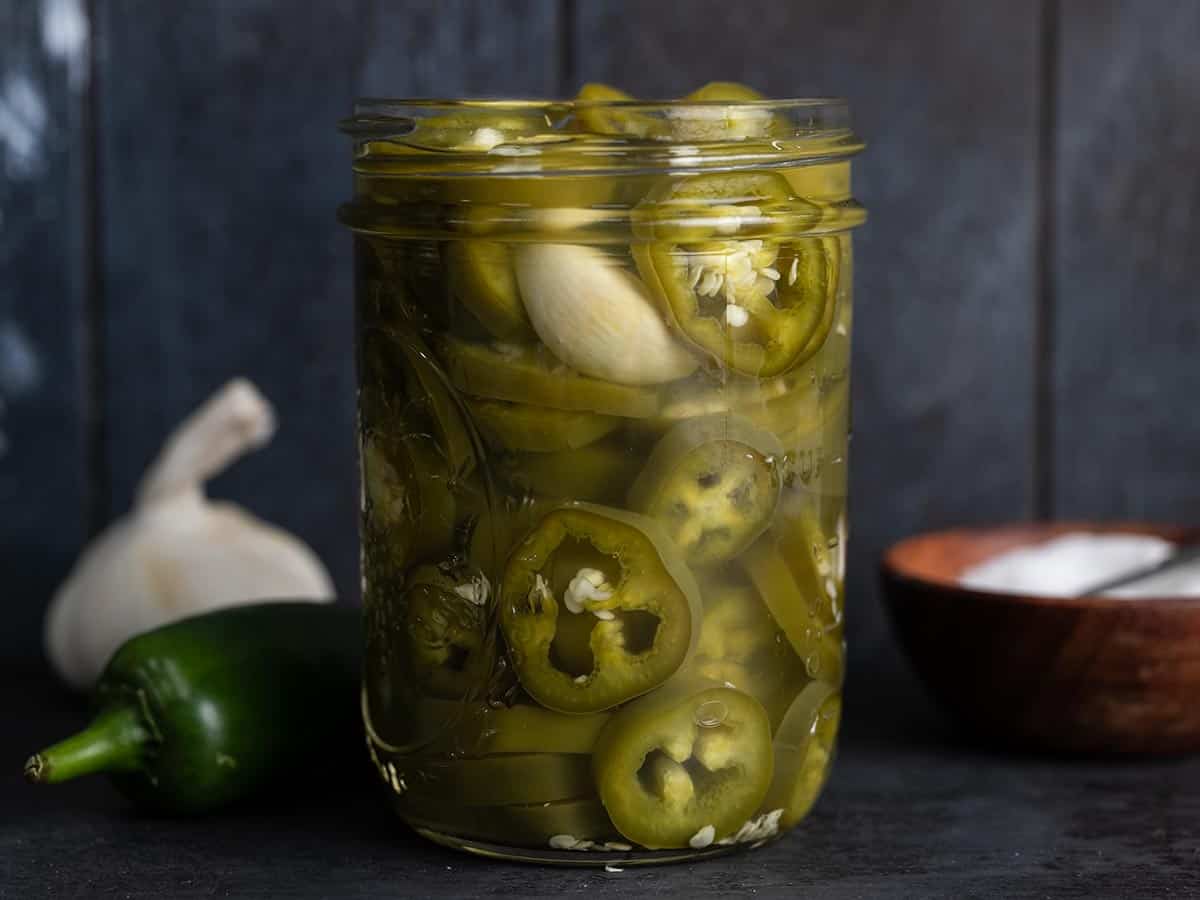
Easy Pickled Jalapeños
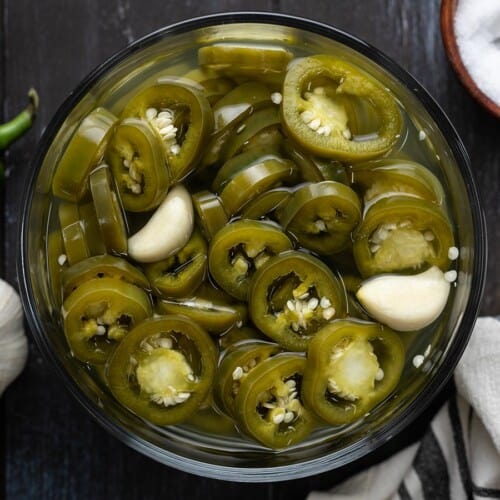
Ingredients
- 1 lb. jalapeños ($1.49)
- 2 cloves garlic ($0.16)
- 1.5 cups white vinegar ($0.52)
- 1/2 cup water ($0.00)
- 1 Tbsp salt ($0.10)
- 1 Tbsp sugar ($0.03)
Instructions
- Wash and slice the jalapeños. Peel the garlic.
- Add the vinegar, water, salt, and sugar to a medium sauce pot. Bring the mixture up to a boil over medium-high heat, stirring to dissolve the salt and sugar.
- Once the brine reaches a boil, add the jalapeños and garlic. Turn the heat off, place a lid on the pot, and let the peppers marinate in the brine for 30 minutes. Stir them occasionally to make sure they all spend adequate time under the brine. Replace the lid each time.
- After marinating in the brine for 30 minutes the peppers will change from bright green to olive green. Transfer the peppers to a non-reactive (glass or plastic) air-tight container, then store in the refrigerator for up to two months.
See how we calculate recipe costs here.
Notes
Nutrition
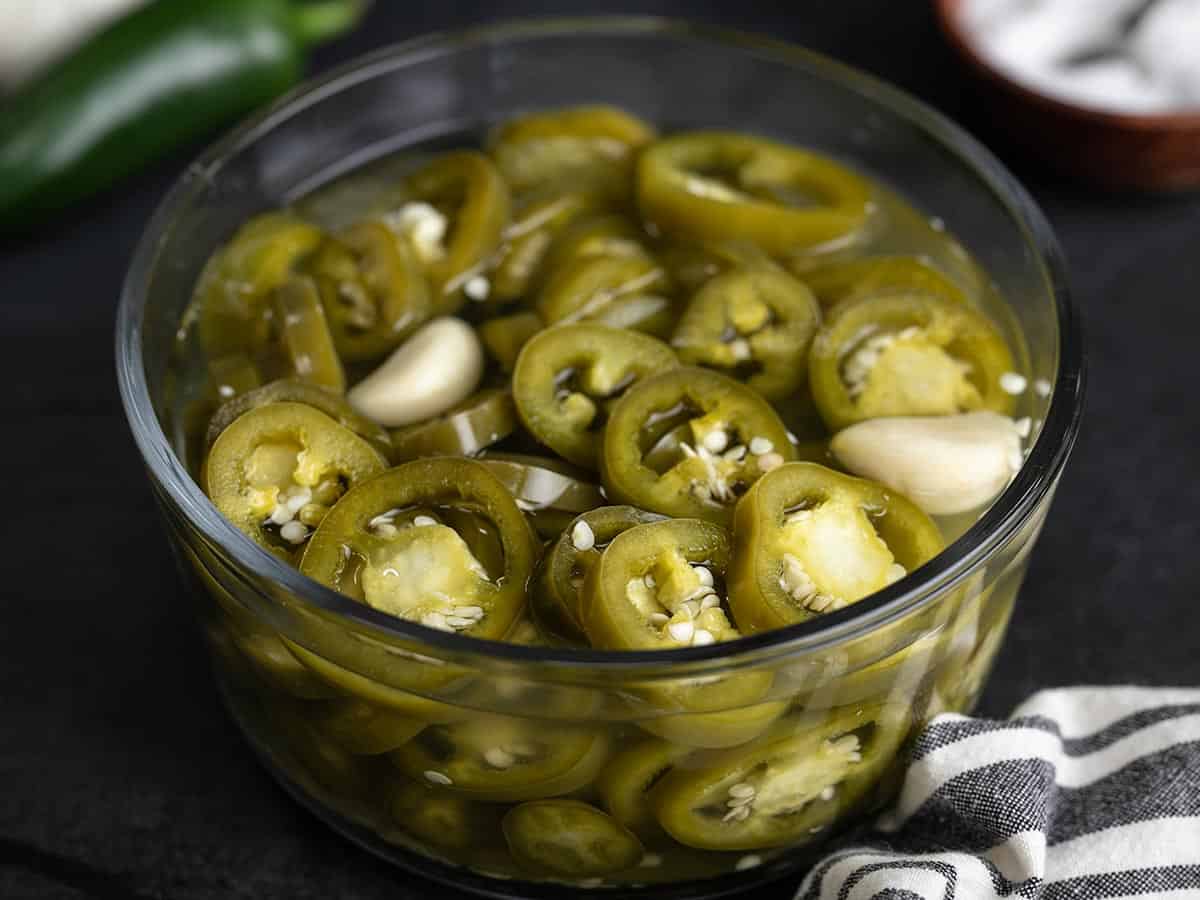
How to Make Pickled Jalapeños – Step by Step Photos
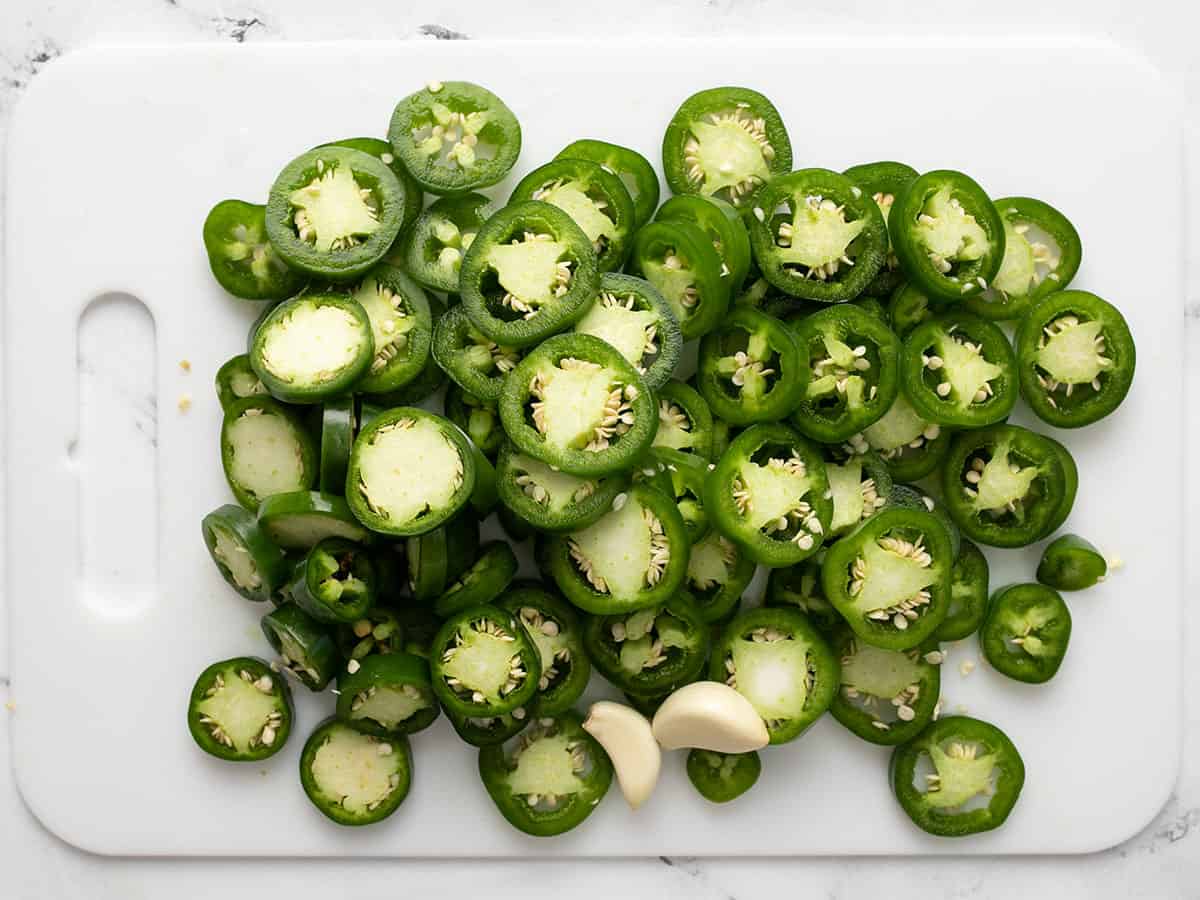
Wash then slice one pound of fresh jalapeños. Peel two (or more) cloves of garlic. Feel free to measure with your heart when it comes to the garlic!
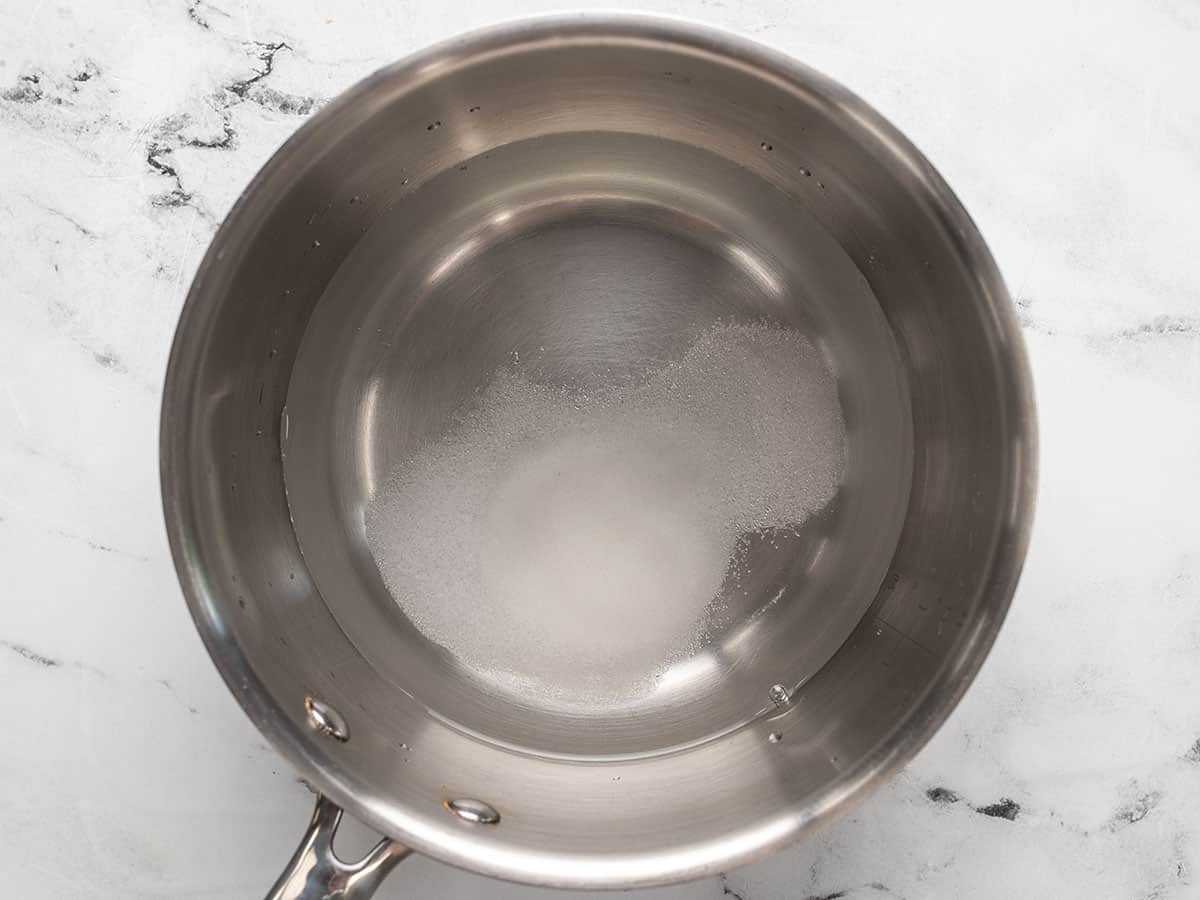
Add 1.5 cups white vinegar, ½ cup water, 1 Tbsp salt, and 1 Tbsp sugar to a medium saucepot. Bring the mixture up to a boil over medium-high heat, stirring to dissolve the salt and sugar.
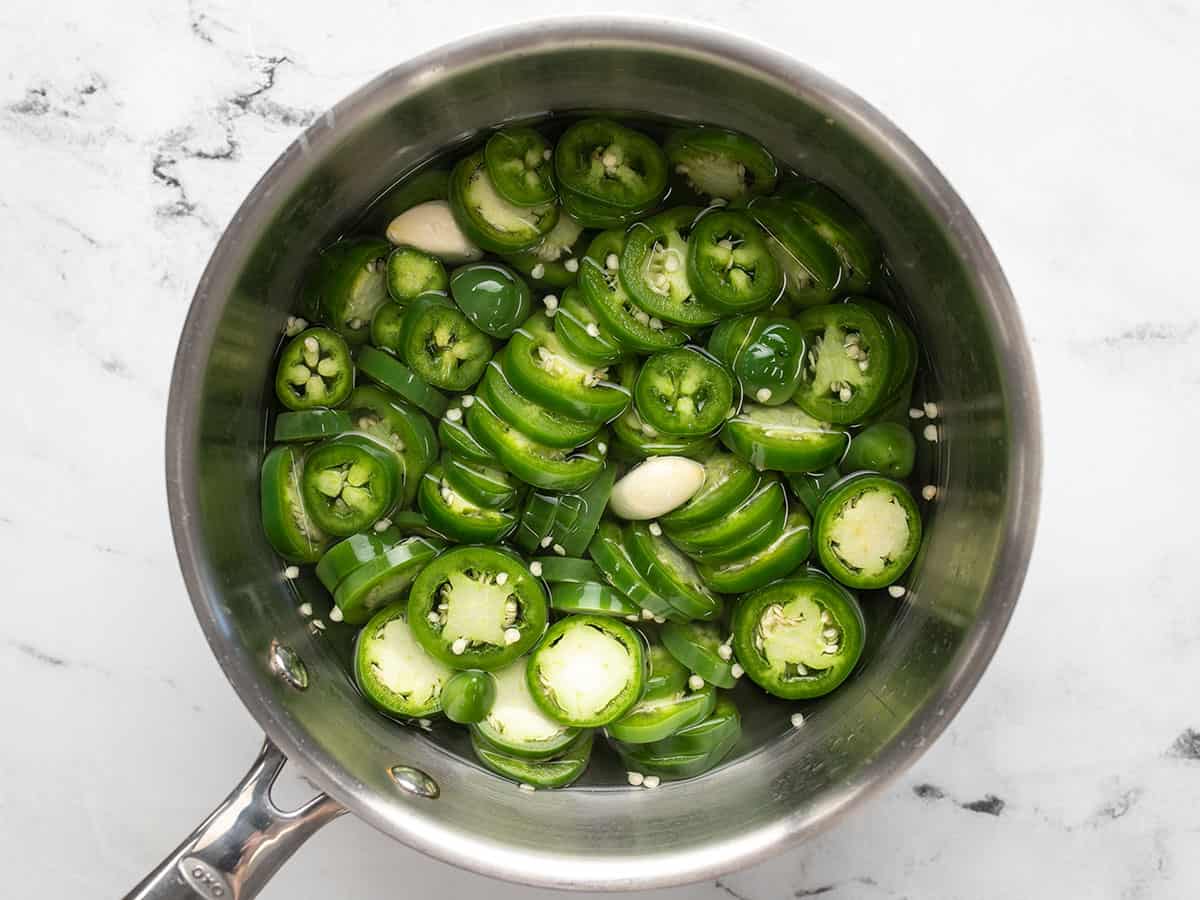
When the brine reaches a full boil, add the sliced jalapeños and peeled garlic. Turn the heat off, place a lid on the pot, and let the jalapeños marinate in the brine for 30 minutes, stirring occasionally to make sure all of the peppers get submerged. Try to resist tasting them until they’ve soaked for at least 30 minutes!
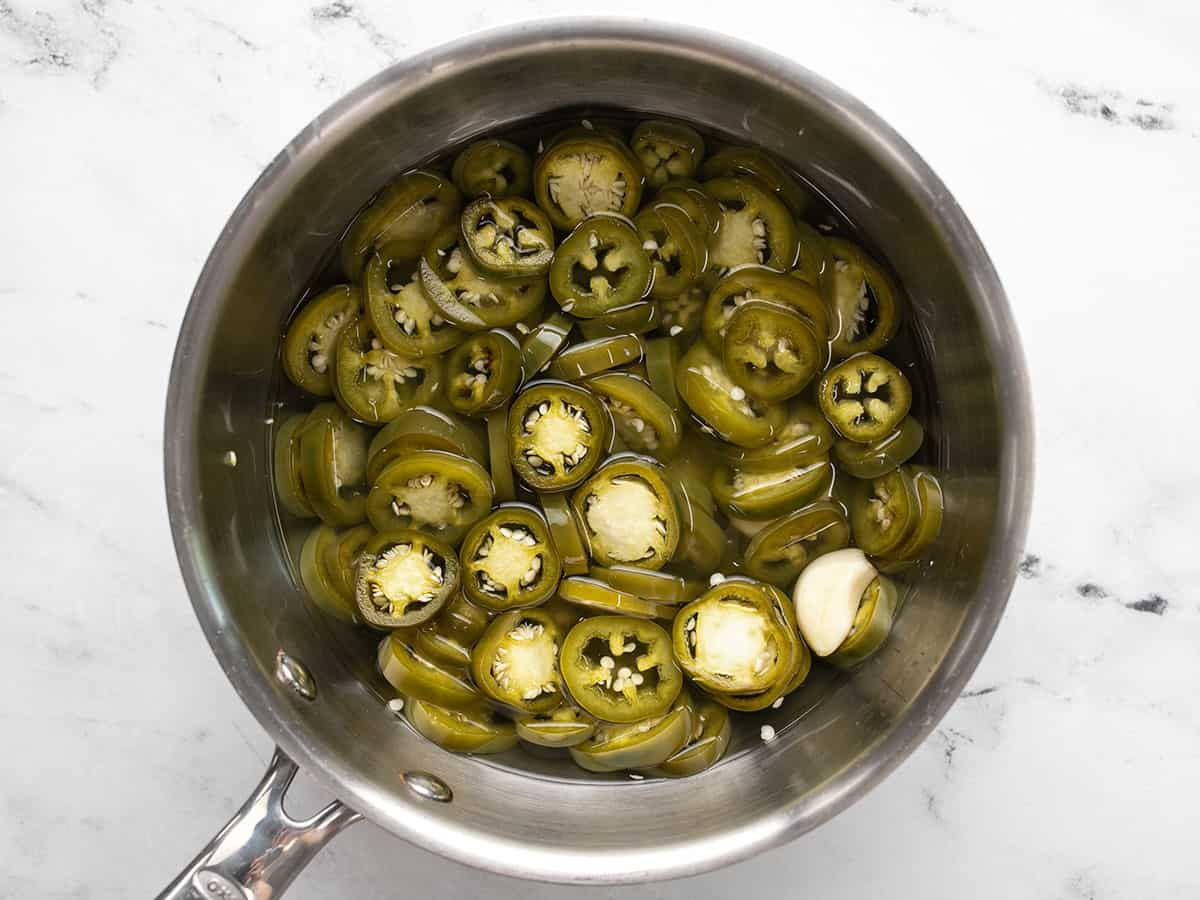
As the peppers soak in the hot brine they will change in color from bright green to the familiar olive green color of pickled jalapeños. Once they’ve marinated in the brine for 30 minutes, transfer the peppers and all of the brine to a non-reactive (glass or plastic) air-tight container, then transfer to the refrigerator for storage.
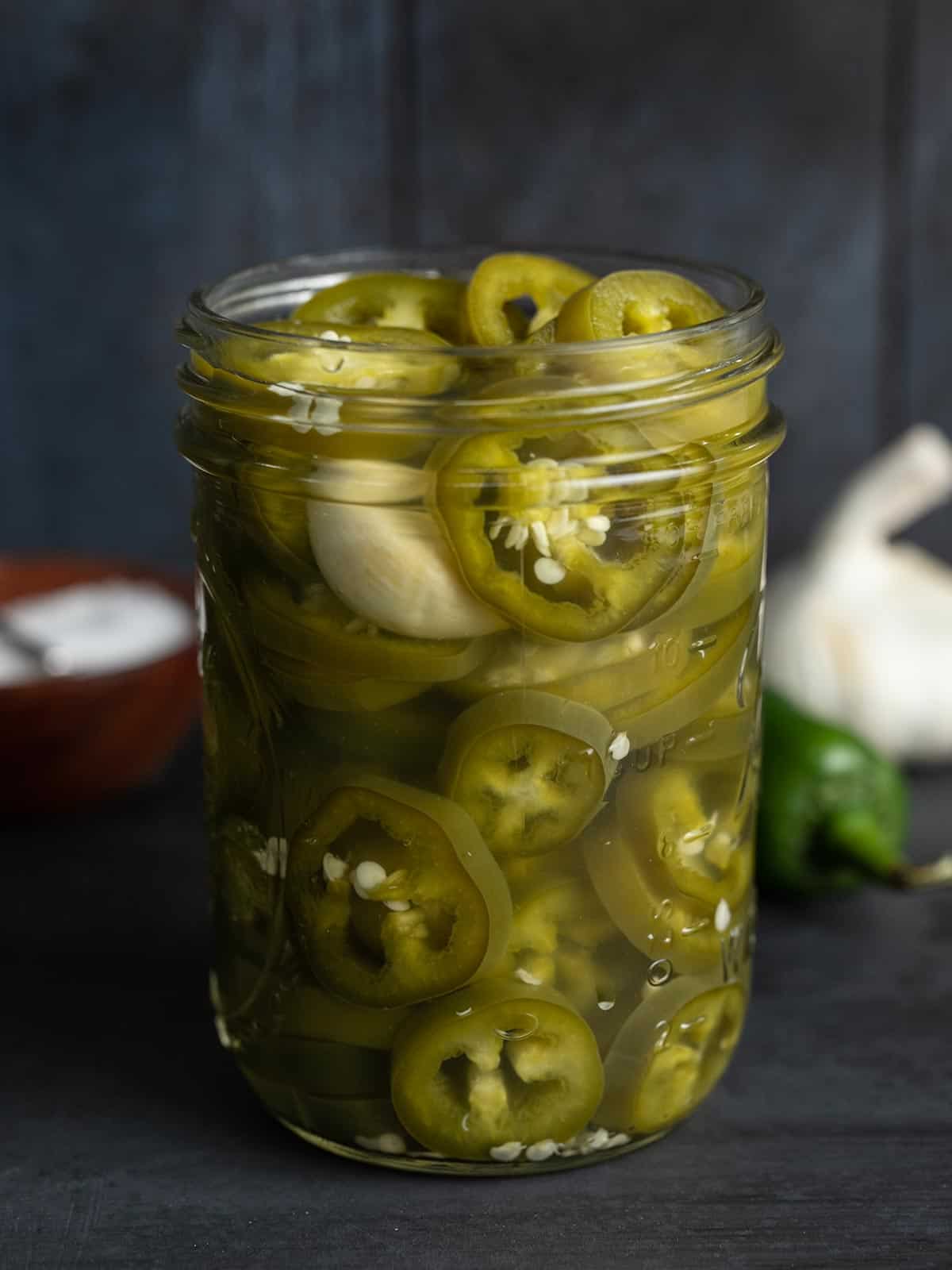
Store the jalapeños in the refrigerator for up to two months and enjoy them on all of your favorite foods! …Or just straight from the jar. 😏


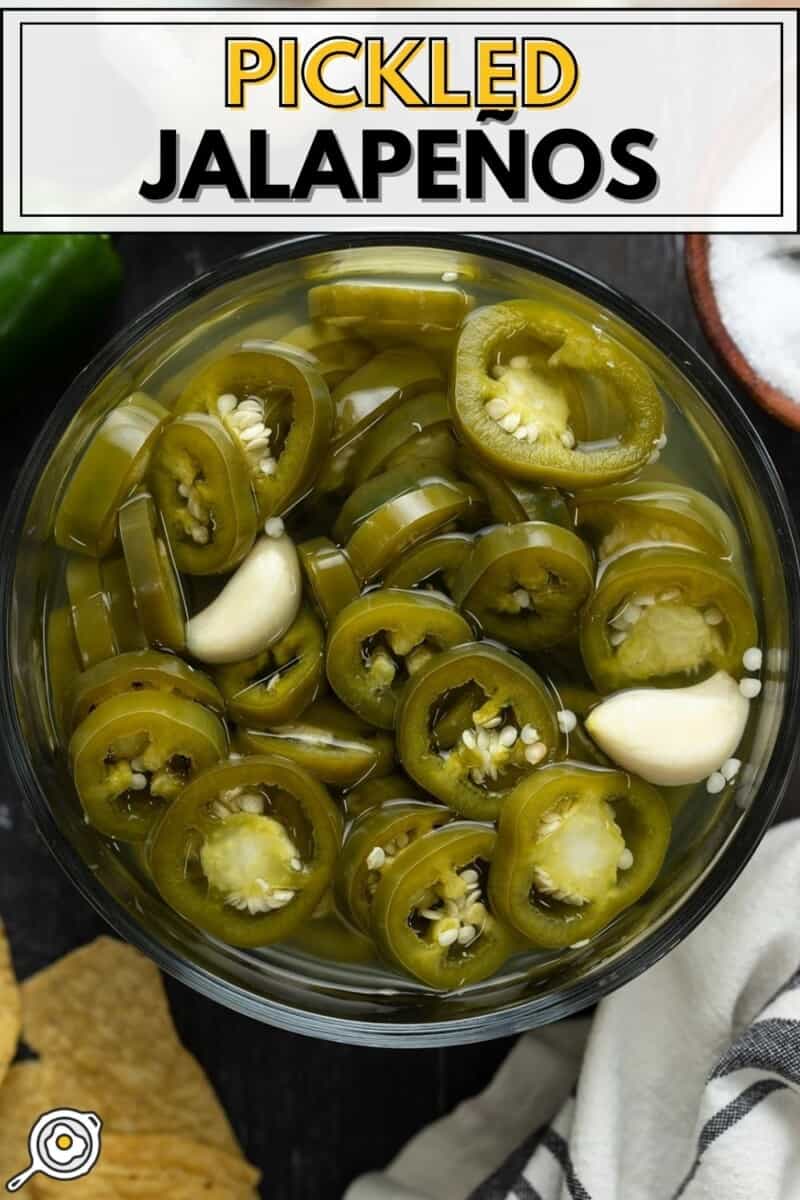
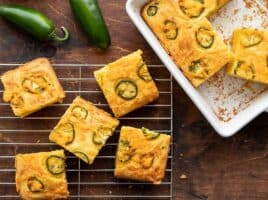
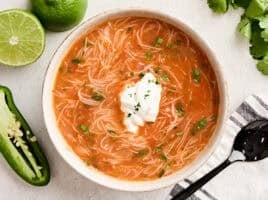
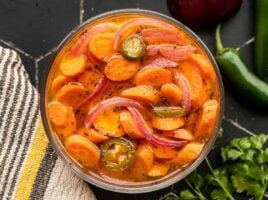

I wonder how many jalapeños equal the weight listed. I’m an eyeball cook 👨🍳
It really depends on the size (I’ve seen some huge ones!), but I’d say about 10-12 standard jalapenos.
Easy affordable and very nice, love it.
Very tasteful with a zing. Great in a spinach omelette and other various dishes. Great recipe
Do they stay crunchy
Or get soft?
They definitely still have a bite to them right after making them! Once you get closer to that 2 month mark, they’re a bit softer.
Im ready to boil and dissolve the solution but am not sure when to add the optional ingredients one might like to add.
Your help is apprecieated.
Can this recipe be used for long term? Can I use it like making pickles?
We’ve never made it to the canning phase, Annie so I’m not certain! They do last for up to two months in an air-tight glass or plastic container in the refrigerator though!
These are just amazing!! I will never again eat a grilled cheese sandwich without them (while popping several in my mouth as I slowly grill my sandwich)
What kind of salt?
Table salt or fine sea salt will work.
I don’t love super spicy things and usually use jalapenos without their seeds and membranes. Will these be less spicy since they are pickled? I haven’t tired a pickled jalapeno before.
They’re still pretty spicy. :)
Add more sugar. More sugar =less heat.
Thanks for this very easy small batch recipe!!! I love having pickled jalapenos on hand, not just because they have a better shelf life than fresh ones, but because the pickling makes them milder than fresh and perfect for sandwiches, tacos, nachos, pizzas, salads, whatever. They are delicious and I can’t always find pickled jalapenos in my supermarket. I definitely prefer them to those packed in water. I will continue, however, to have fresh ones in my fridge most of the time.
Perfect for my garden jalepenos! Thanks for the recipe!